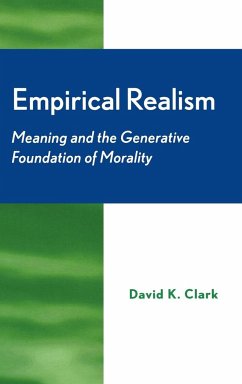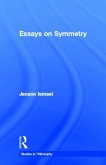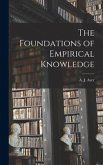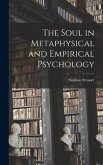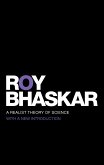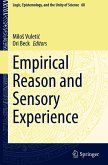In Empirical Realism David K. Clark asks, simply: is there a moral structure to the universe? His answer takes a rigorous detour through key questions raised by classical philosophy, metaphysics, epistemology, and the philosophy of mind. Although the argument favors the moral realist's position that the universe does have a moral structure integral to the quality and direction of human life it also serves to further complicate this issue for moral realism.
Hinweis: Dieser Artikel kann nur an eine deutsche Lieferadresse ausgeliefert werden.
Hinweis: Dieser Artikel kann nur an eine deutsche Lieferadresse ausgeliefert werden.
Very few philosophers would take on the scope and reach of this volume. Fewer would manage the task with as much eloquence and elegance as David Clark. Spanning a range of integrated topics in metaphysics, philosophy of mind, and ethics, Clark offers a highly novel and spirited defense of realism which includes substantive discussion of core issues in philosophy of technology and environmental ethics-two topics not usually covered in such conversations. This book will surely thrill some and outrage others. Whatever one's response, the ride Clark takes us on with this ambitious volume is well worth the trip. -- Andrew Light, New York University David Clark takes up Richard Sylvan's famous challenge to create a new environmental ethic...Additionally, his identification of prohibitions against the destruction of a rich life and the infliction of horrifying experience upon another being seem promising normative principles for the treatment of human and non-human others and go some way towards solving the anthropocentrism problem. As well, those interested in the possibilities for a Heideggerian ethics will find valuable material for reflection here. -- Richard Matthews, Mount Allison University David Clark's book is an ambitious and far-reaching defense of a robust form of moral realism. Overall Clark's book engages the contemporary analytic literature in a wide range of key areas, including the latest work on moral realism. His position is novel and challenging, rooted in an abiding respect for our everyday moral experience, yet at the same time sensitive to the ways in which that experience can be corrupted or distorted by culture and moral tradition. His sensibilities are poetic, and his account of the dignity we can discover in the objects of everyday experience is courageous and powerful. -- Gregory Velazco y Trianosky, California State University

